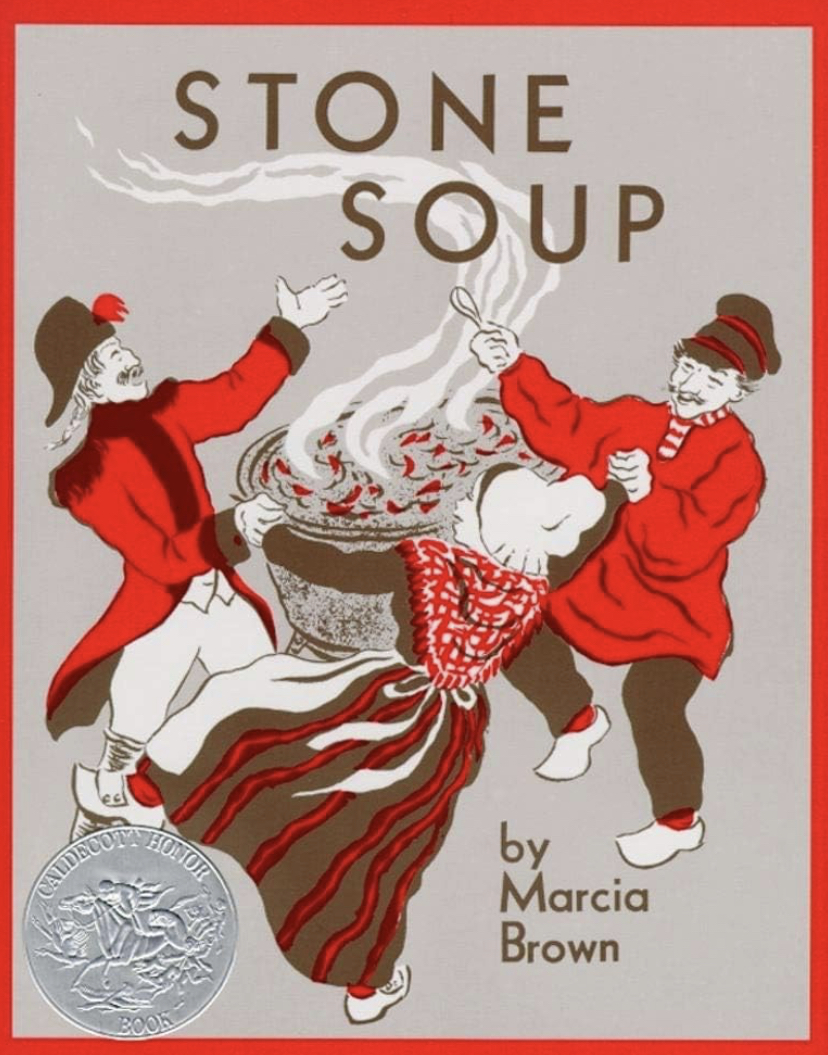collectiveprovidence.church
The Church of Collective Providence

The Church of Collective Providence is an imaginary/real-enough institution established as a social convention for people who wish to join a collective that’s just religious enough to catalyze mutually supportive relationships in service of something greater than oneself, but not so religious that it undermines epistemic humility or individual self-sovereignty.
The only requirement to join the church is a commitment to practicing reciprocity, otherwise known as The Golden Rule. Reciprocity is what makes collective providence possible.
Stone Soup

In the story of Stone Soup, a group of hungry travelers arrive at a village and ask the villagers for food, but the villagers refuse. So the travelers set up a pot of boiling water with some stones in it and tell the villagers that they are making stone soup, which they will gladly share with the villagers, but they need some additional ingredients to make the soup taste better. The villagers agree to share their ingredients and everyone enjoys the soup.
One of the key ingredients in collective providence is commitment. Getting individuals to commit to supporting the collective is often necessary for the collective to be able to support its members. But often individuals are hesitant to commit before they see evidence that the collective will reciprocate. The story of Stone Soup illustrates one way to solve this chicken-and-egg problem.
The stones allow the travelers to call it “soup” rather than just “hot water”. And once the villagers perceive that there is soup, that perception is enough to free the villagers of their hesitance, allowing them to commit to sharing ingredients.
The Church of Collective Providence is similar to Stone Soup. This church is just a made up idea. But by calling it a church it becomes joinable. Once people join, it becomes a true church just as stone soup becomes a true soup.
What is collective providence?

Collective providence is that which allows a collective to provide for its members more than the members could provide for themselves as individuals.
Unlike divine providence, which is by definition beyond human comprehension, collective providence is tangible and even measurable. Collective providence is something we can cultivate intentionally. And yet, it is also magical. It is the creation of something from nothing. It is the emergence of a higher power out of basic elements.
You can read more about the concept of collective providence here.
What is reciprocity?
Reciprocity means doing unto others as you would have them do unto you, and it is a common value found across many cultures and religious traditions. It is also a key enabling factor in the cultivation of collective providence.
When everyone practices reciprocity, helping anyone helps everyone.
The Five Triangles

The Five Triangles is the symbol of the Church of Collective Providence. It both represents and demonstrates the concept of collective providence. When three small triangles are arranged to create one large triangle, a fourth small triangle is created in the middle out of empty space, making the larger triangle greater than the sum of its parts.
The fifth triangle is the larger whole that the smaller triangles are a part of. It represents that which is greater than oneself.
How to join
Since the church is just an idea, you join by deciding to join. And joining can mean whatever you intend for it to mean. You can organize your community under the banner of the church if you wish. You don’t need to get anyone’s permission or blessing. The Church of Collective Providence is an idea that belongs to everyone and no one, and there is no centralized leadership body.
The only requirement is a commitment to reciprocity.
About this website
This website is created and maintained by Dan Allison, but Dan claims no ownership over these ideas, nor does he claim any position of authority within the church. The Church of Collective Providence is an idea that belongs to everyone and no one, and there is no centralized leadership body.